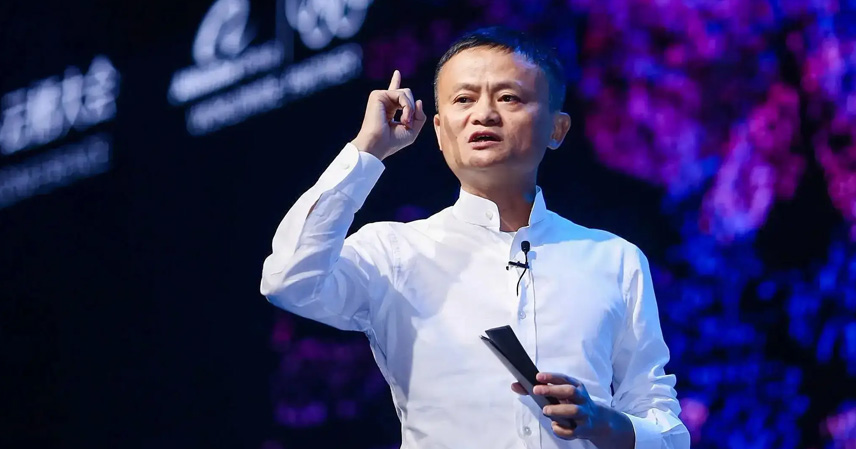After several years out of the public spotlight, Jack Ma, the founder of Alibaba Group, has made a powerful return to the company. His direct involvement has reached its highest level in the past five years, and he is eager to make “Alibaba great again.”
This year, Ma’s public appearances have become noticeably more frequent. Since the end of 2024, Ma has made at least 10 appearances in various forms. On December 8 last year, Ma delivered a rare speech at Alipay and Ant Group’s 20th-anniversary event, sharing his thoughts on artificial intelligence (AI). This was his first public speech in years.
Ma is not just making occasional appearances; his hands-on involvement in Alibaba’s operations has been significant. In addition to participating in decisions involving billions of dollars in spending, he has required regular updates on the AI business developments at Alibaba. Recently, some of his notable decisions have included Alibaba’s AI strategy and its involvement in the food delivery wars with Meituan and JD.com. It’s rumored that Alibaba invested 50 billion yuan to counter JD’s entry into the food delivery market, with Ma being the key decision-maker. This decision has led to intense competition between the three giants: Alibaba, JD, and Meituan.
In a way, Ma’s first battle upon his return is leading Alibaba into a direct confrontation with Meituan and JD in the food delivery market, which could be the starting point for his goal of “making Alibaba great again.” However, with the current “red ocean” competition, along with regulation pressures and profit decline, Alibaba’s traditional e-commerce infrastructure advantage may no longer guarantee success.
Of course, throughout Alibaba’s history, Ma’s groundbreaking innovations have often followed unconventional paths, taking difficult and less-traveled routes. Since his return, Alibaba has committed to substantial investments in AI and cloud infrastructure. Ma’s AI plans have already shown significant competitive potential. However, while these investments lay some groundwork for “making Alibaba great again,” there are still numerous challenges and issues that must be addressed.
Intense Domestic E-commerce Competition
On the one hand, the domestic e-commerce market is becoming increasingly competitive. Platforms like Pinduoduo, Douyin, and JD.com have risen, and Tencent’s involvement has shaken investor confidence. Alibaba has also been losing money on its international business, with multiple platforms wasting significant promotional expenses. Moreover, the market share is now largely controlled by the giants, making it much harder to turn around the current losses. According to Goldman Sachs, by July, Alibaba’s share of the Chinese food delivery market had fallen to 43%, behind Meituan’s 47%.
User Experience Decline
On the other hand, user experience has significantly deteriorated. In recent years, Alibaba’s “traffic-first” mentality has led to a dramatic decline in customer satisfaction. The main reason for this setback is the company’s neglect of the user-first philosophy, which allowed newer players like Pinduoduo and Douyin to quickly surpass it. For instance, Alibaba’s customer service department uses KPIs like “reducing complaints” instead of “improving satisfaction.” Consumers often face the “passing the buck” problem when they complain, whereas platforms like Pinduoduo and Douyin offer superior customer service, resulting in a faster loss of Alibaba’s users.
As the internet dividend era fades, the pillars that once supported Alibaba’s massive commercial empire are now crumbling. The current era is one of AI-driven growth, and the industry dynamics are different from those of the internet era. Alibaba’s platform DNA means that it needs a more fundamental and thorough transformation to stay in sync with the current AI-driven world. Without this transformation, it may struggle to resonate with today’s AI revolution.
Strategic Inconsistencies and Challenges
A deeper issue lies in the shifting strategic focus. While Ma has pushed for an “All in AI” approach, Alibaba’s senior management is facing the reality of performance pressures. Although Alibaba Cloud holds the largest market share, its profit margin is only 6.5%, significantly lower than the 23% of its core e-commerce business. A source close to the board revealed that Cai Chongxin bluntly said at a strategy meeting: “We cannot gamble today’s profits on a market that might not exist tomorrow.”
Today, Ma’s powerful return image benefits the “Alibaba greatness” vision, but how long will the public support last? It remains uncertain. While it’s easy for “Alibaba greatness” to trend on social media, maintaining public goodwill over the long term is much more challenging. Once Ma’s activity wanes, can Alibaba sustain this wave of stock price growth?
For a company, is Ma’s charisma more important, or do actual business results matter more? Shifting focus from people to products might be the long-term strategy, but at present, Alibaba’s pace seems too reliant on Ma’s influence. This reliance on short-term effects and long-term growth may hide a deeper crisis.
References:
- Alibaba Group’s 2024 Annual Report
- Goldman Sachs Food Delivery Market Report, July 2025



